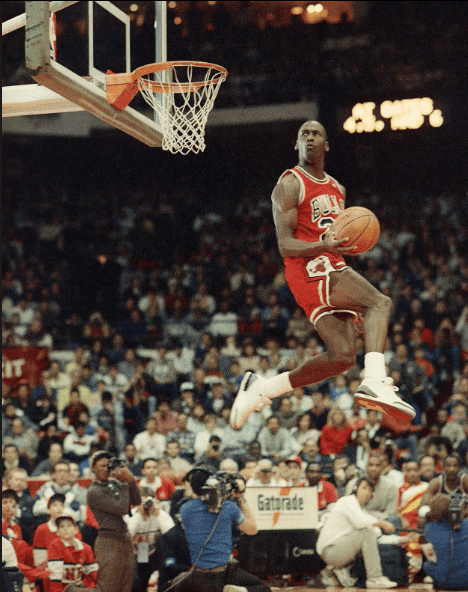Polls use random _______ to estimate national beliefs and measure public opinion accurately.
What is 'sample?'
Routine churchgoers tend to lean toward this political party.
What is Republican?
Nonreligious voters tend to lean toward this political party?
What is Democratic?
The right to ________ expanded slowly, ending unfair limits once based on property, based, and gender.
What is 'vote?'
Some states make voting harder by requiring state-issued ______, which lower turnout among young and low-income voters.
What are "IDs?"
This player is considered the greatest NBA player of all time as he went 6–0 in the Finals with six Finals MVPs, never allowed an NBA Finals to even get to a Game 7, won ten scoring titles and a Defensive Player of the Year award, maintained a higher career scoring average than LeBron, and never switched teams to win championships.
Who is Michael Jordan?

This term refers to whether people are 'for' or 'against' a specific issue.
What is direction?
This term refers to 'how strongly' people feel about a specific issue.
What is intensity?
This term refers to 'how important' people feel a specific issue is to them.
What is salience?
_____________ groups or individuals often shape public policies far more than ordinary citizens.
What is 'wealthy' or 'powerful'?
___________ adults vote less often because they move a lot and must constantly re-register to vote.
People whose ideology borrow from both the Democrat and Republican parties tend to label themselves as _____________.
What is 'independent?'
This cannot be seen directly, so leaders study elections and protests to understand citizens' beliefs.
What is public opinion?
The way polls questions are __________, or worded, can change how people respond.
What is framed or framing?
These include family and religion - they affect the development of your political ideology early in life.
What are primary agents?
These include peers and social media - affecting the development of your political ideals later in life.
What are secondary agents?
______________ usually believe in taxing the wealthy for welfare and the individual's choice for marijuana and abortion.
What are liberals?
_______________ usually believe in instilling Christian values upon American society, and the strengthening of military and immigration.
What are 'conservatives?'
Larger random samples in a poll reduce the chance of __________. (Bullet point).
What is 'error?'
This is the lifelong learning process of developing your political ideals based on life interactions and events.
What is political socialization?
___________ beliefs unite and divide Americans, shaping opinion on moral issues like abortion.
What is 'religious' or 'religion?'
Many people form opinions using ____________, often trusting political leaders instead of researching issues themselves.
What is 'shortcuts?'
__________ ___________ in the U.S. is lower than in other democracies because of individual registration responsibilities.
What is 'voter turnout?'
The __________ ______________ provided women of all races the right to vote in the United States.
What is the 19th Amendment?
Citizens form _________ of ________ like party identification and ideology that guide beliefs through socialization.
What are frames of reference?
_____________ ______________ builds emotional loyalty to Democrats or Republicans, strongly shaping opinions and political choices.
What is 'party identification?'
____________ ___________ is a general belief about government's role, shaping views on economic and social issues.
What is 'political ideology?'
__________ _________ means people often form opinions based on shared traits like religion, race, or age.
What is 'group orientation?'
___________ __________ shapes opinions on issues like health care and taxing the rich for welfare.
What is 'economic class?'
People with a strong ________ ______ or party loyalty vote more, while apathy and alienation lower turnout. (bullet point)
What is 'civic duty?'